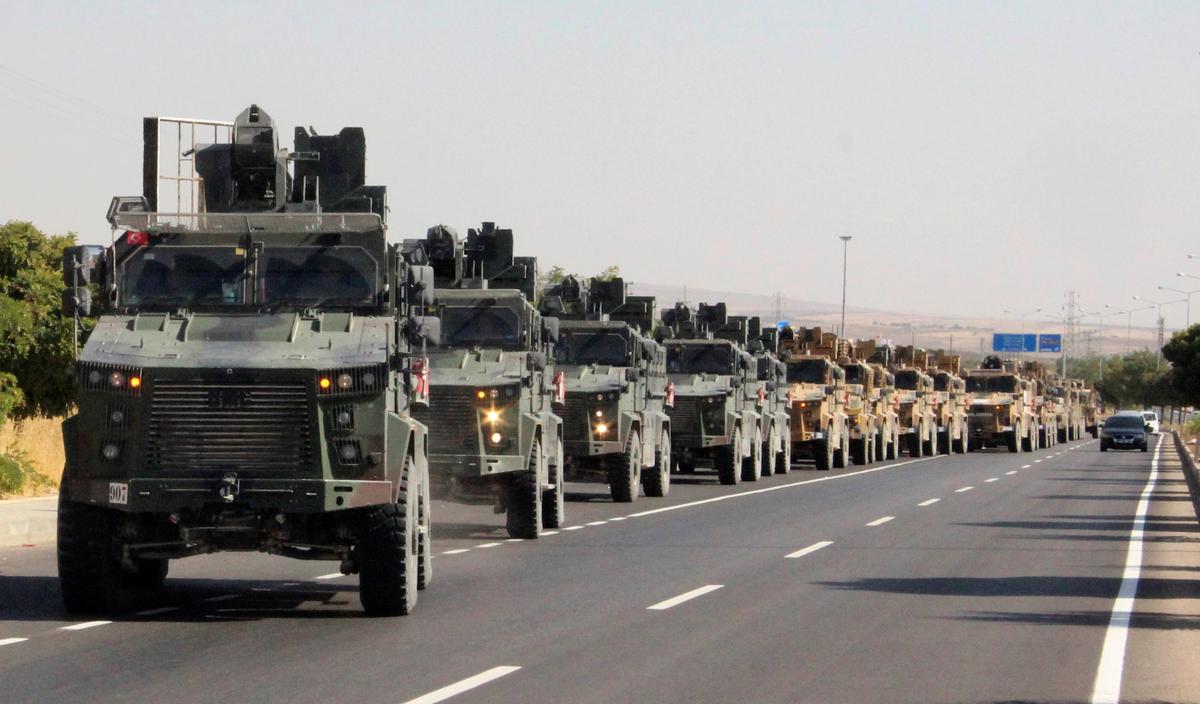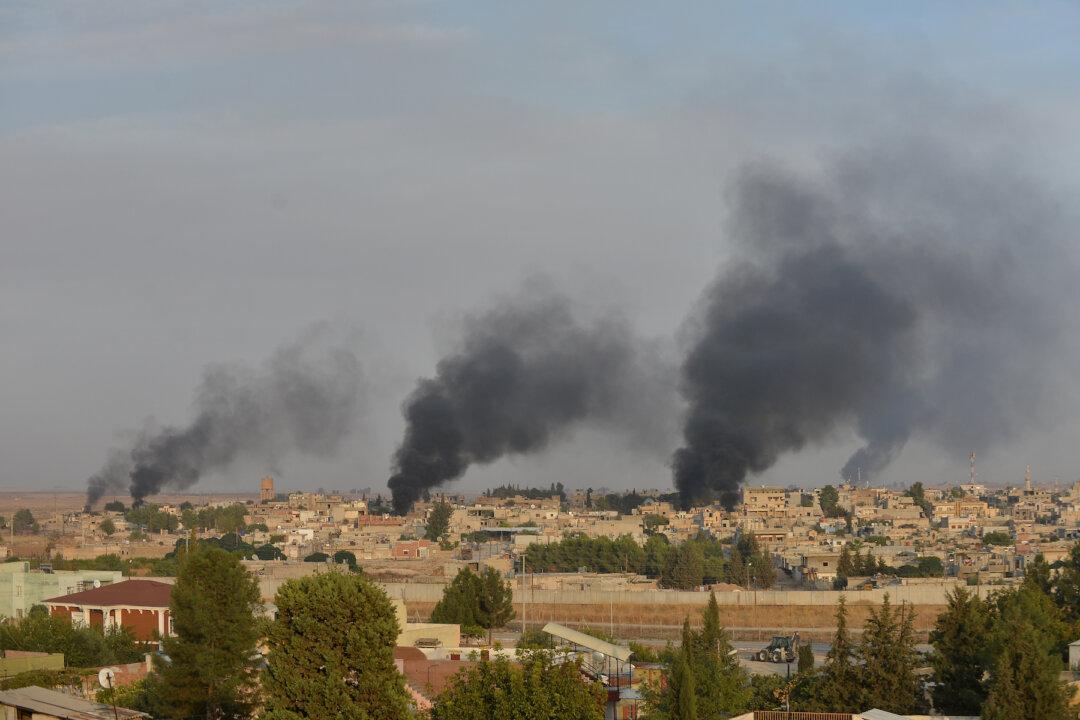AKCAKALE, Turkey—Turkish troops and their Syrian rebel allies attacked Kurdish militia in northeast Syria on Wednesday, pounding them with airstrikes and artillery before starting a cross-border ground operation.

A Turkish miltary convoy is pictured in Kilis near the Turkish-Syrian border, Turkey, Oct. 9, 2019. (Mehmet Ali Dag/ Ihlas News Agency (IHA) via Reuters)





